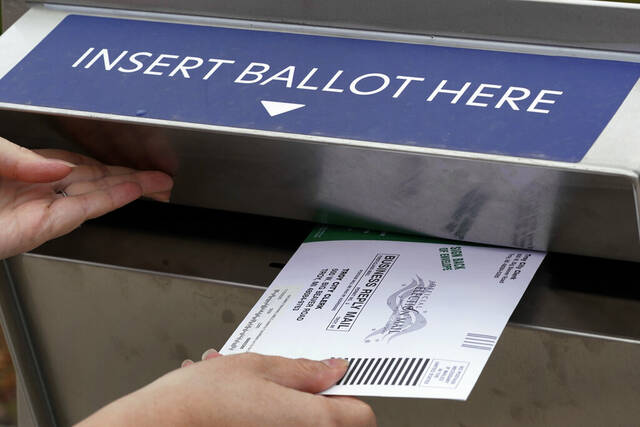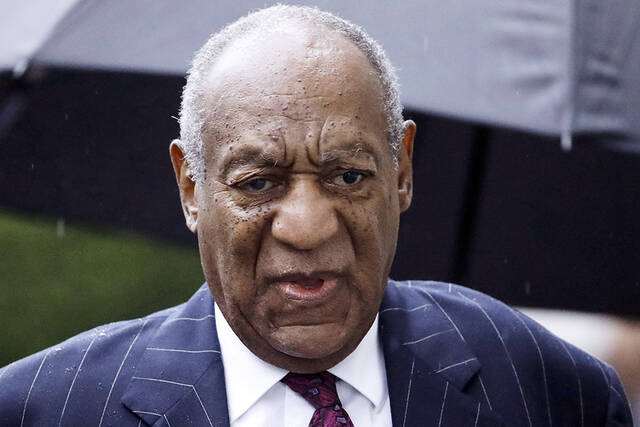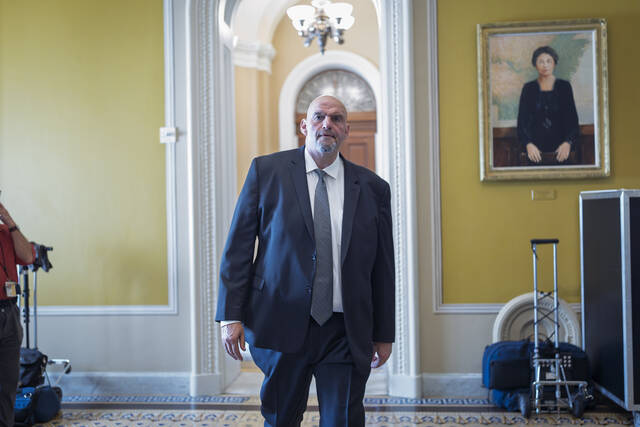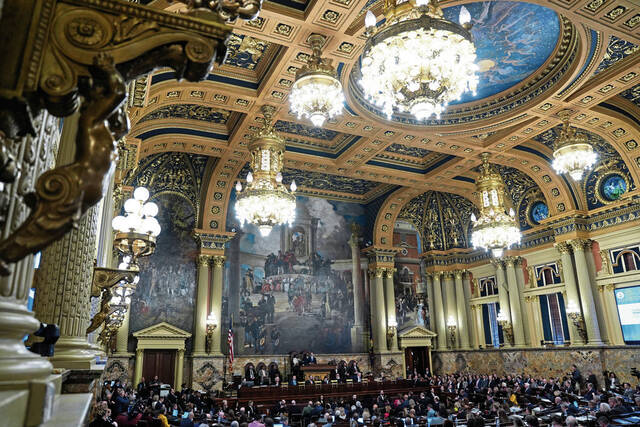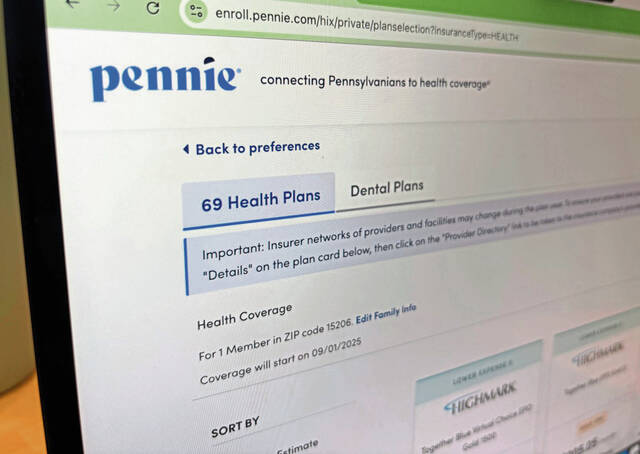Legislation that would give counties a seven-day head start on getting ballots ready for tabulating and require voters be given the chance to correct minor issues to ensure their ballot gets counted won passage by a state House committee on Monday.
The bill, sponsored by House State Government Committee Chairman Scott Conklin, D-Centre County, passed out of committee on a 12-9 party-line vote, positioning it for consideration by the full House of Representatives.
The changes are among those requested by county commissioners and election officials for more than three years to speed up the tabulation of votes and to help clear up voter confusion surrounding absentee and mail-in voting process.
“This is the bill that people who do the elections asked for,” Conklin said.
But Republican lawmakers on the committee, who voted as a bloc against the bill, raised concerns about provisions that they feared would violate the secrecy of the ballot and would potentially allow for voters to vote twice.
Along with moving the start time for getting ballots ready for tabulation sooner than the 7 a.m. Election Day start currently allowed by law, the legislation would leave the use of the inner, or privacy, envelope for returning a ballot up to the voter’s discretion. Courts have ruled that alone disqualifies a ballot.
The measure also would require counties to notify a voter if they fail to sign or date the outer envelope containing their ballot to give them a chance to correct it so their votes can be counted. Currently, some counties already do this; others have declined to allow this ballot “curing” practice.
Another change in this bill is it alters the deadline for applying for mail-in ballot by mail to 11 days before an election from the current seven days. But it would open up the opportunity for a voter to go in person to the county election office to apply for a ballot up until 5 p.m. the day before the election.
Rep. Dawn Keefer, R-York County, questioned whether allowing someone to apply for a ballot so close to Election Day would allow enough time for the poll books to be updated to reflect that a voter already have been given the chance to vote. Among other concerns she and others had centered around a voter’s failure to place their ballot in the inner privacy envelope. They noted the state constitution requires secrecy in voting to be preserved.
“I don’t see how such language can pass constitutional muster,” said Rep. Louis Schmitt, R-Blair County.
“There’s nothing in the constitution about secrecy envelopes. It is about a secret vote,” responded Nick Himebaugh, the committee’s Democratic executive director.
Rep. Malcolm Kenyatta, D-Philadelphia — who authored an amendment the committee approved on a party-line vote to further sharpen the bill to include county and election officials’ preferences — added voters have had their votes thrown out because they failed to place the ballot in the secrecy envelope.
“Just as sacred as protecting your vote and the secrecy of your vote, having that vote counted in the first place seems like a pretty important part of the process,” Kenyatta said.
Rep. Brad Roae of Crawford County, the ranking Republican on the committee, called the legislation a “solution in search of problem.”
He said the state provided $45 million to counties in election integrity grants to buy equipment and/or hire personnel to ensure mailed and in-person vote tabulation could be completed soon after polls close.
“I’m not sure why we would keep giving counties millions and millions of dollars in election integrity grants by letting them hire all this extra staff so they can get everything counted in one day when we’re giving them a whole week now,” Roae said.
Kenyatta argued despite those grants, the state is underfunding counties to administer elections. He further said the bill’s critics are misunderstanding that the bill is intended to clear up the bottlenecks in the election administration system that have arisen since the 2019 law passed that introduced no-excuse mail-in voting to Pennsylvania..
“The intent is to do and what I would hope is a bipartisan way to heed the concerns, the requests of bipartisan county commissioners, Republicans, Democrats, good Pennsylvanians, good Americans who spend every day trying to administer our election in a fair, impartial way who want to get the ballots counted as quickly as possible,” Kenyatta said.
Past attempts to address the election administration issues covered in this bill failed when the House was under Republican control because Republicans demanded it be paired with a voter ID requirement and other issues that proved to be too controversial to win former Democratic Gov. Tom Wolf’s signature to become law.
With the House now under Democratic control, Conklin made a point of bringing this legislation up for a vote in the state government committee’s inaugural meeting of this legislative session in hopes of advancing it through the General Assembly in an effort to restore voter’s faith in the integrity of elections.
“Let’s give the public the understanding that your vote counts and there is nothing behind the scenes that is happening,” Conklin said.
Gov. Josh Shapiro has publicly stated he supports giving counties more time to ready, or precanvass, ballots to be tabulated.


